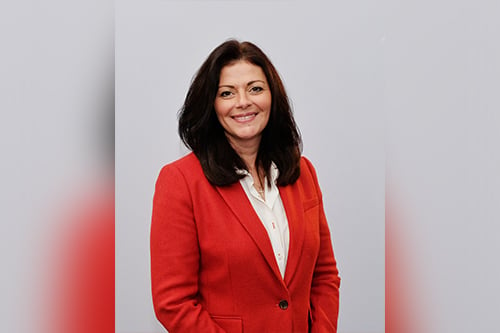

When the business boosted its executive team earlier this year, Covéa Insurance’s COO, Adrian Furness detailed the importance of having a senior team in place with the expertise and experience to enable the company to successfully address the challenges of a new decade. Joining the executive team as the newly appointed people director, Lisa Meigh (pictured), has been a member of Covéa since 1995 and has seen firsthand how employees within the insurance sector have changed what they are looking for in an employer.
Meigh believes the most high-profile change in recent years is that insurance companies have moved to embrace greater diversity and inclusion, and she outlined how people have come to recognise the benefits this brings in terms of employee engagement, greater innovation and ultimately delivering a better customer experience. It is important to be about more than premiums and claims, she said - insurers need to add value to the community and wider society.
“As employers we are competing for talent far beyond the insurance industry,” she said. “To appeal to and attract diverse talent from a wide spectrum of backgrounds, experiences and perspectives and retain the best people, the internal culture of the organisation is fundamental. Fostering an inclusive culture which leverages that diversity to enable insurance companies to innovate, to evolve at pace and to deliver the best products and services for our customers is key.”
There are many ways in which insurance can and has worked to become more inclusive, Meigh said, detailing the work Covéa has done in providing training for all its leaders in unconscious bias and inclusive behaviours. Providing resources to support leaders regarding having conversations with their teams and in thinking about the individual and collective changes that can be made to foster inclusivity has been essential, she said.
Meigh has seen the requirement for a good corporate culture becoming increasingly important and she believes it will be an even greater priority for the upcoming generation of employees who, she said, are even more focused on values alignment. This generation want to work for organisations with a clear purpose, where they can meaningfully give back as individuals, Meigh said, and she believes a key attribute of this future talent is their strong social consciousness.
“As employers,” she said, “we need to look beyond the profit motive and build-in ways people can fulfil this inherent desire to act for social good and create opportunities where they can make a difference.”
If insurance companies want to attract and retain people and have diversity of thinking within their business, she said, it will be even more important for them to have a culture that fosters diversity and inclusion. Meigh also outlined how the benefits of genuinely engaging with inclusivity go beyond talent acquisition and retention to helping insurers to meet the needs of a more diverse customer base, and she detailed how the company’s internal culture has positively impacted on its customers through initiatives such as vulnerable customer workshops and dementia friends training.
Internally Covéa has established several employee-led groups raising awareness of the issues faced by minority groups and building allyship, Meigh said, and she stated that everything done in this sphere is driven by the business’s employees and their passion for this action.
“[Our] pace of cultural change is as a result of what our people are doing, not what we are doing,” she said. “What we have done is given people the resources, time and freedom to contribute, empowering them to make it happen. As a result, the initiatives and results are real and authentic – it doesn’t feel like a corporate initiative because there’s nothing corporate about it.”
For brokers looking to implement changes to their own company culture and to engage employees with this process, there are a number of recommendations which she believes will help generate a better internal environment and central to these is putting employees at the heart of these changes. This is essential, she said, as, while leadership is needed to shape and support changes, it is employees who are the ones to drive real change if given the right opportunity and empowerment.
Brokers must embolden their people to make changes and give them the means to harness their passion, she said, as well as being open to providing guidance where required and making sure that everybody in the company gets their say. They should also be clear that what they are doing is the right thing, Meigh said, and to be in the position of being able to explain to anybody who does not understand the need for increased inclusivity, the business benefits in terms of employee engagement and increased discretionary productivity.
To fully embrace the changing company culture requirements that employees have from their businesses, brokers must be willing to challenge themselves, she said, and to really listen to their employees.
“The only real way to create lasting change is to do it together and to do what matters,” she said, “and that means everyone feeling accountable for and a part of making it happen.”
